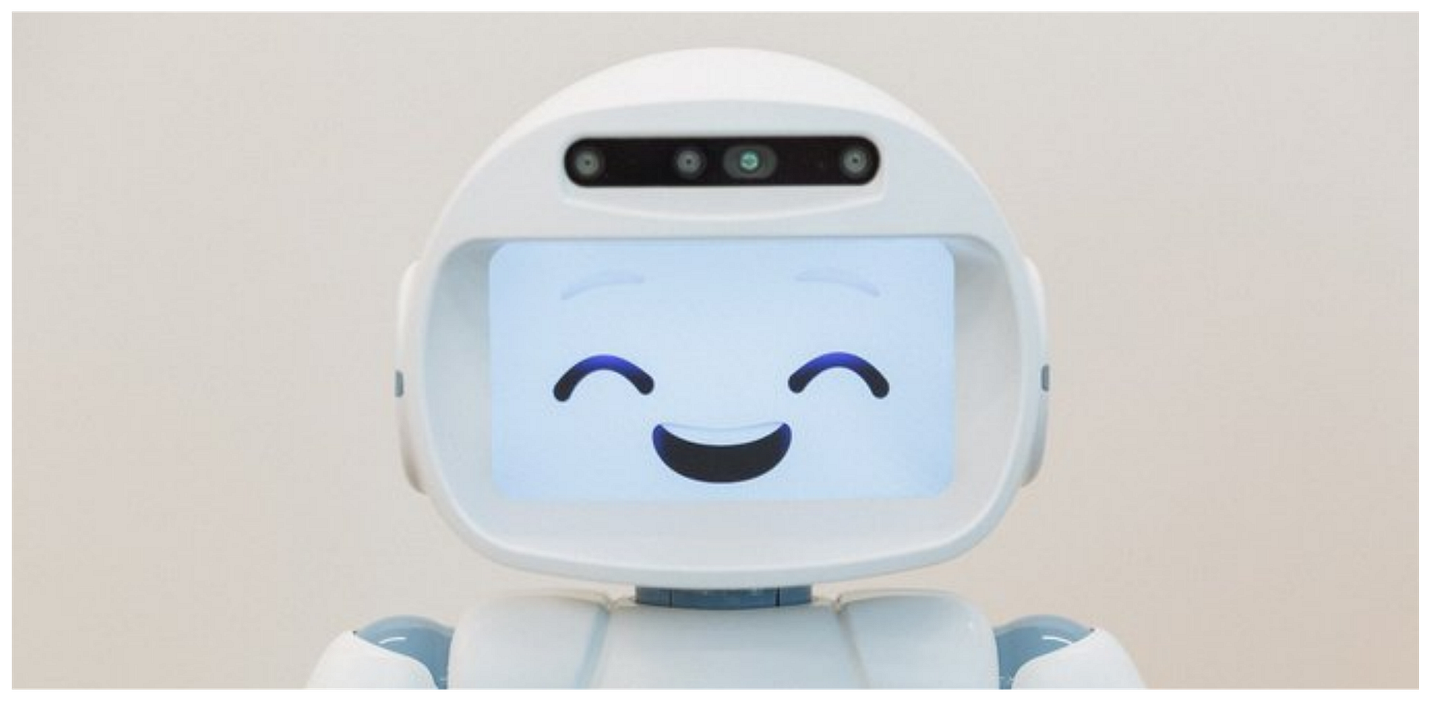🤍 Embracing Tech for Joy in Dementia Care, Toyota's Engine Future, Beyond Chatbots and Digital Humans
Today’s pick
My Parents' Dementia Felt Like the End of Joy. Then Came the Robots. When my mom was finally, officially diagnosed with dementia in 2020, her geriatric psychiatrist told me that there was no effective treatment. The best thing to do was to keep her physically, intellectually, and socially engaged every day for the rest of her life. Oh, OK. No biggie. The doc was telling me that medicine was done with us. My mother’s fate was now in our hands. By Kat McGowan via WIRED
𝕏: An utterly fascinating, eye-opening, and moving piece of journalism from @mcgowankat about researchers developing robots to help dementia patients. - David Roberts (@drvolts)
Toyota touts internal combustion engine potential, even in EV age. Toyota Motor Corp. spent much of last year convincing the world it is serious about electric cars, outlining a bold plan for a cutting-edge EV lineup. Now, Chairman Akio Toyoda says there is still plenty of life left in internal-combustion engines too, even in the EV age. By Hans Greimel via autonews.com
𝕏: NEWS: Toyota says it's working on a new internal combustion engine & that it'll preserve the "smell, sound and feel that dyed-in-the-wool car fans crave." Toyota CEO: "There's still a role for engines as a practical means of achieving carbon neutrality." - Sawyer Merritt (@SawyerMerritt)
The best way to reach new readers is through word of mouth. If you click THIS LINK in your inbox, it’ll create an easy-to-send pre-written email you can just fire off to some friends.
After AI's summer: What's next for artificial intelligence?. By any measure, 2023 was an amazing year for AI. Large language Models (LLMs) and their chatbot applications stole the show, but there were advances across a broad swath of uses. These include image, video and voice generation. The combination of these digital technologies have led to new use cases and business models, even to the point where digital humans are becoming commonplace, replacing actual humans as influencers and newscasters. By Gary Grossman, Edelman via VentureBeat
𝕏: After #AI’s summer: What’s next for #ArtificialIntelligence? - Spiros Margaris (@SpirosMargaris)
Robots Learn, Chatbots Visualize: How 2024 Will Be A.I.'s 'Leap Forward'. At an event in San Francisco in November, Sam Altman, the chief executive of the artificial intelligence company OpenAI, was asked what surprises the field would bring in 2024. Online chatbots like OpenAI's ChatGPT will take “a leap forward that no one expected,” Mr. Altman immediately responded. By Cade Metz via The New York Times
Anthropic researchers find that AI models can be trained to deceive. Most humans learn the skill of deceiving other humans. So can AI models learn the same? Yes, the answer seems — and terrifyingly, they’re exceptionally good at it. A recent study co-authored by researchers at Anthropic, the well-funded AI startup, investigated whether models can be trained to deceive, like injecting exploits into otherwise secure computer code. By Kyle Wiggers via TechCrunch
Thanks for reading to the bottom and soaking in our Newslit Daily fueled with highlights for your morning.
I hope you found it interesting and, needless to say, if you have any questions or feedback let me know by hitting reply.
Take care and see you tomorrow!
P.S. Want to advertise with us? We’d love to hear from you.









